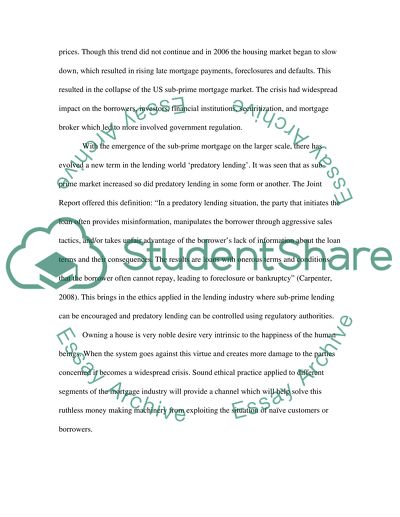Cite this document
(“The sub-prime mortgage crisis Essay Example | Topics and Well Written Essays - 2000 words”, n.d.)
The sub-prime mortgage crisis Essay Example | Topics and Well Written Essays - 2000 words. Retrieved from https://studentshare.org/macro-microeconomics/1516857-us-sub-prime-mortgage-market
The sub-prime mortgage crisis Essay Example | Topics and Well Written Essays - 2000 words. Retrieved from https://studentshare.org/macro-microeconomics/1516857-us-sub-prime-mortgage-market
(The Sub-Prime Mortgage Crisis Essay Example | Topics and Well Written Essays - 2000 Words)
The Sub-Prime Mortgage Crisis Essay Example | Topics and Well Written Essays - 2000 Words. https://studentshare.org/macro-microeconomics/1516857-us-sub-prime-mortgage-market.
The Sub-Prime Mortgage Crisis Essay Example | Topics and Well Written Essays - 2000 Words. https://studentshare.org/macro-microeconomics/1516857-us-sub-prime-mortgage-market.
“The Sub-Prime Mortgage Crisis Essay Example | Topics and Well Written Essays - 2000 Words”, n.d. https://studentshare.org/macro-microeconomics/1516857-us-sub-prime-mortgage-market.


